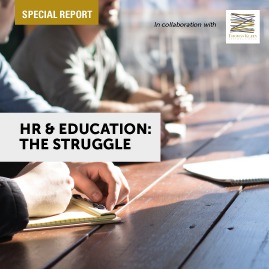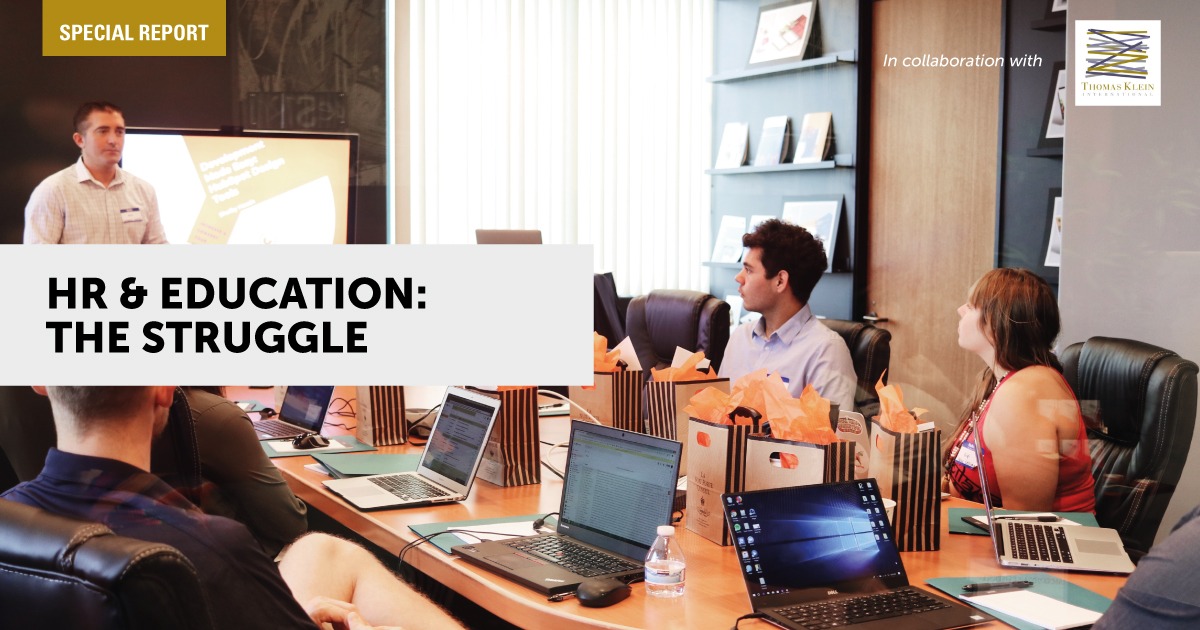Daniel During, principal and management director of Thomas Klein International, tells us why ongoing staff training is the key to success
As diners, we all have a list of our favorite restaurants that we can recount endless stories of praise about. Especially now during this time of self-isolation, we are reminiscing about those appetizers to share, main courses to dig into and desserts to boomerang on social media.
Personally, what I miss most is the attention. I may sound self-centered when I say for that one night my experiential journey as a customer is not only to be taken care of but also preempted. My server offers me a refill before the thought has even crossed my mind, and I am brought the dessert menu even though I know my personal trainer wouldn’t approve. For me, this sort of interaction is a gem that cannot be faked or replicated.
When it comes to the local standard of customer service within restaurants, in my opinion very few outlets set and uphold this benchmark in providing the type of customer service that keeps me coming back for more; my loyalty is not earned by just a fancy menu or the “Instagrammable” décor. Being recognized as soon as I walk in, with my server knowing my favorite table and drink, wins my loyalty. My loyalty is kept by the employees delivering an experience that I cannot wait to experience again.
In reality, the word “employee” does not truly encompass the importance of this role. Your team is the personification of your brand. They are brand ambassadors who are the most interactive touch points within your customer’s experiential journey. As an operator, you place trust in your team to meet and exceed customer exceptions. Your team is your most valuable asset. They are the soldiers you cast, deploy to the frontlines of service, fighting your fight with you.
Unfortunately, a large portion of operators in the market do not understand their team’s true value or develop their full potential, which many times leads to their demise. From the customer’s standpoint, it takes just one bad employee interaction to taint anything good that came before or afterwards. Thus, with so much weight and importance placed on the shoulders of your team, it seems logical that one should put the time, effort and energy into pre-opening and continuous training.
With high restaurant investment and running costs, we source our frontline staff abroad from countries with lower salary expectations in efforts to maintain lower fixed costs. It doesn’t matter where your staff originates from, as long as they display a willingness to learn, improve and excel, all attributes that shape their attitude. This is more important than education and more important than experience. You can have degrees and years of experience, but the attitude you adopt when you show up to work is what makes you attractive to employers. In a true partnership, it is the employee’s responsibility to bring their positive attitude to the table and the management’s responsibility to provide the tools needed to excel.
What we tend to overlook is that we hire employees from abroad where their perception of food and the overall dining experience is foreign to ours, which creates a disconnect. They cannot be expected to truly provide a product or service unless they have been given the tools to understand and experience it. You cannot expect them to provide the type and standard of western service you desire without exposing them to it.
As a training exercise, we need to gauge if they are comfortable as the customer if the roles are reversed. They may feel awkward having someone attend to them in such detail or feel unaccustomed to the food concept. These exercises will help shape the type of training that is needed from the point of view of both the person who provides it and the person who receives it. You can’t expect them to preempt customer’s needs and wants without ever being the customer themselves.
The saying “a fish rots from the head” conveys the message that one cannot blame the student if the teacher did not teach. It is management’s responsibility to assess, train and retrain to eliminate any obstacles. If staff members are not performing to the standard set by management, the question is: has the standard been set, documented, trained meticulously, tested and followed up? It is important to build a strong foundation before the doors open because, as we know, you can’t build a great building on a weak foundation.
Training stems at the very beginning, before the employees are even hired, back in the budgeting stages. Time is of the essence, and from an investment perspective, the goal is to start generating revenue as soon as possible. Nevertheless, we cannot overlook the importance of allocating one or two months during the pre-opening stages to train staff. With operators investing upwards of two million dirhams into their restaurants, investing a couple of months of employee salaries in pre-opening training is just a drop in the ocean.
All things considered, it boils down to realizing and maximizing the power that our employees possess. Strive to create a product or service that customers will remember for the right reasons. Build and fortify the relationships and interactions between your brand and your customers. As leaders, educators, investors and operators, it is our responsibility at the top to sculpt and nurture our hospitality workforce to create the ultimate customer experience.

















